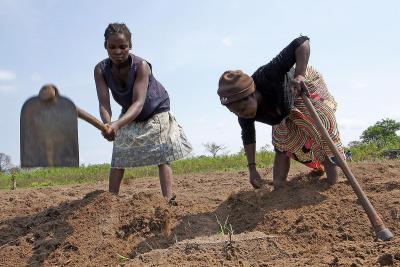IFAD signs deal to boost food security in Angola

ROME – A new financial agreement was signed on Tuesday between the International Fund for Agricultural Development (IFAD) and Angola, who have set out to boost food and nutrition security amongst 8,000 Angolan rural households in the Benguela, Cunene and Huila provinces.
The agreement for the Agricultural Recovery Project (ARP) was signed by the President of IFAD, Gilbert F. Houngbo, and Florêncio Mariano da Conceição de Almeida, the Ambassador and Permanent Representative of Angola to IFAD.
A total of US$7.6 million has been invested in the project, including a $5 million loan and $1 million grant from IFAD.
It will also be co-financed by the Government of Angola ($0.7 million), the Food and Agriculture Organization of the United Nations ($0.5 million), as well as by beneficiaries themselves ($0.4 million).
In order to help the smallholder farmers, the project will develop water infrastructure by reconstructing multi-purpose water sources. The Angolans will also be taught the necessary skills needed to reduce their vulnerability to climate-related shocks.
These measures will help them significantly, seeing as Angola has been affected by repeated climate events, such as El Niño (drought) and La Niña (flood), which have had a catastrophic impact on food security for millions of the population.
ARP will also build on the work done by various emergency programmes funded by the Government of Angola and other development partners.
They will provide households with two essential packages: a crop-based food security package and livestock-based packages consisting of poultry, goats, sheep and pigs. These will vary, however, depending on the household’s asset base.
The project will ultimately help communities increase and improve their on-farm productivity, as well as their food security through livelihood diversification.
Since 1991, IFAD has financed seven rural development programmes and projects in Angola for a total cost of $147.3 million, with an IFAD investment of $82 million directly benefiting 268,600 rural households.
fct


